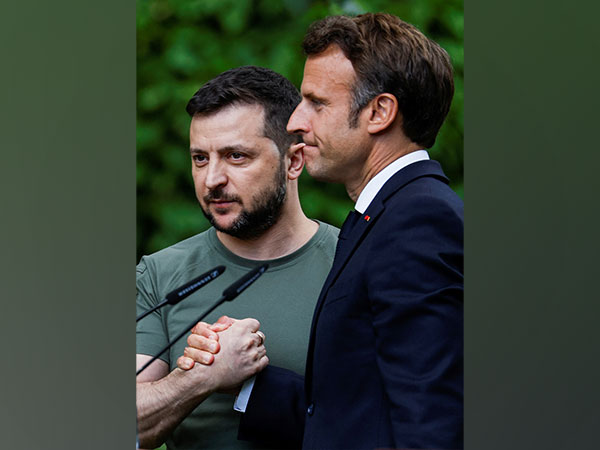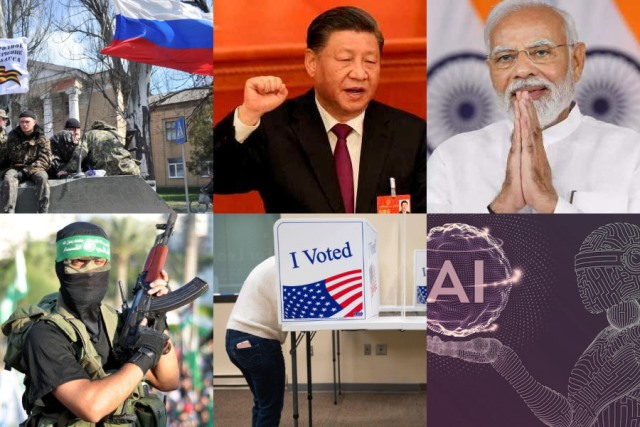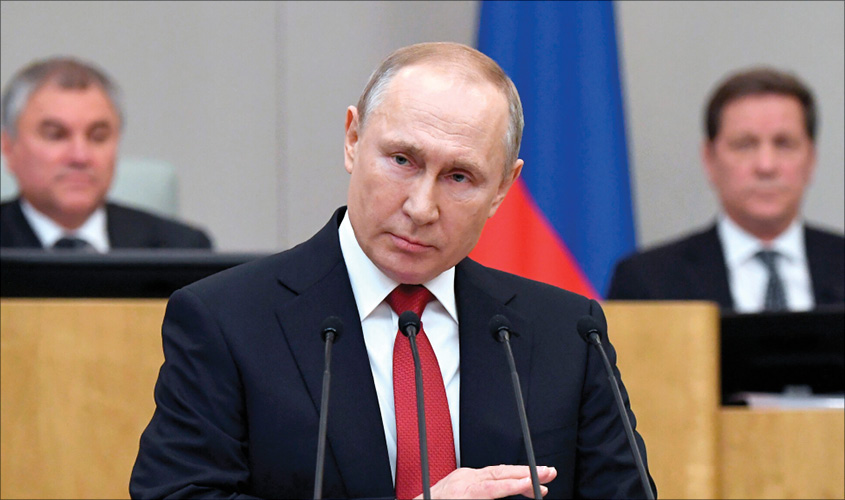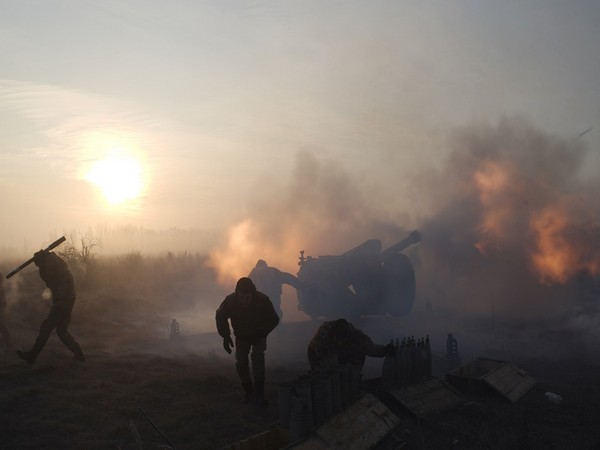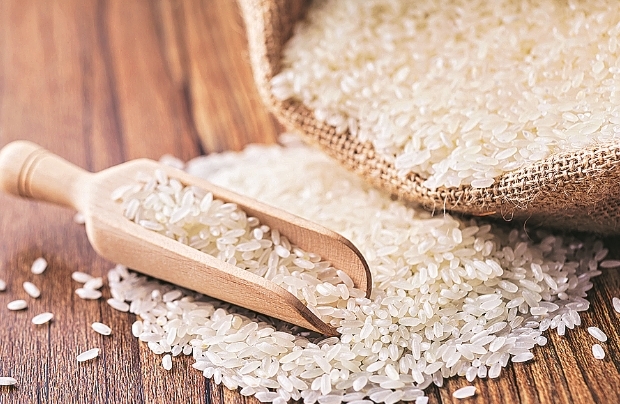We humans are remarkably adept at adaptation. We can adjust to most changing situations, sometimes swiftly and at other times less quickly. Perhaps the speed with which we can adapt to technology is among the highest. The pace at which we adapt to geopolitical changes is probably slower. Regardless of how quick or slow we are, we most certainly can adapt to change.
According to Jean Piaget, the Swiss psychologist known mainly for his work on how a child develops cognitive abilities, humans adapt to new information and experiences using two processes. We first assimilate new situations by incorporating the new information into our mental framework. Then, in the second stage, we change our mental framework or structure in order to fit the new information. Together, the two processes help us learn, adjust and grow with the new environment or changed situation.
Russia’s Ukraine War May Conflagrate. In 2023, there were huge upheavals in our environment. Some of them, such as Russia’s conflict with Ukraine began earlier, in early 2022, but it was in 2023 that it became more grim. The war was here to stay. In the beginning, many, including seasoned analysts of geopolitical conflicts, assumed that Russia’s war against Ukraine wouldn’t last long and would peter out because, at least in the beginning, Russia was perceived to be ii-equipped to win the wat and its initial onslaughts had not been very successful. Then there was also the setback when Russian mercenary fighters, the Wagner Group rebelled, ostensibly, against the Kremlin but then backed down before its controversial leader Yevgeny Prigozhin died mysteriously.
For a while in 2023 it seemed that Russia would back off and that the war would end. It didn’t. As we move quickly towards 2024, it could seem that in the coming year, the Russia-Ukraine conflict could not only continue to rage but Russia could firmly dominate the situation and even be a real threat to other regions in the neighbourhood. Vulnerable countries include Georgia, Moldova, Belarus, and the Baltic states of Estonia, Latvia, and Lithuania.
In Ukraine, which is already straining since the offensive began, the situation could get worse in 2024. Although the European Union (EU) has decided to begin talks on the country’s membership of the union, the war funds that it wanted to provide have been blocked by a veto from Hungary. And NATO, which is dominated by the US, could also be hamstrung in its efforts to help Ukraine because in the US legislators have been blocking moves to increase America’s support to the beleaguered nation.
Meanwhile, Russia’s President Vladimir Putin, 71, will contest (and, in all probability, win) a fifth term in next year’s elections and continue his authoritarian grip over his country’s policies, strategies, and actions.
These developments can embolden Russia, which has already unleashed hybrid war tactics against Finland, a new Nato member with which it shares a 1340-km border by sponsoring cyberattacks, pushing in illegal migrants from third countries, and threatening oil pipeline disruptions.
In 2024, with flagging support for Ukraine, you could expect to see a further conflagration of Russia’s expansionism in the region.
In Gaza, Peace Could Be A Far Cry. Since October 7 when the Palestinian militant group, Hamas, launched horrific attacks against Israel (more than 1,400 people, mostly civilians were killed, and hundreds were taken as hostages). Israel responded by launching a war in Gaza, killing thousands of Palestinians and displacing nearly a million more. The conflict is still ongoing, despite international efforts to broker a ceasefire.
With both Israel and Hamas not willing to yield or agree to a long-term ceasefire, the current situation could get even more volatile in 2024. The prospect of settling in favour of a two-nation theory–the idea of creating two separate states for Israelis and Palestinians, based on the 1967 borders–is highly uncertain. Although that theory is backed by the UK, US, the UN, and many other countries, the main protagonists, Israel and Palestine, have irreconcilable differences that are related to issues such as the status of Jerusalem, the fate of Palestinian refugees, the Israeli settlements in the West Bank, and the security concerns of both sides.
Israel, which has expanded its settlements in the occupied areas of Gaza, also demands that any Palestinian state be demilitarised and recognise Israel as a Jewish state. Hamas, which controls Gaza, has rejected the two-nation theory and calls for the liberation of all of historic Palestine, from the river to the sea, does not recognize Israel’s right to exist and has waged several wars against it, firing rockets and launching attacks from Gaza.
Hamas has Iran’s backing and 2024, it is feared, could see a growing involvement of Iran in the conflict. Iran, whose efforts at developing nuclear weapons is a source of global concern, is allied with Russia (it supplies Russia with drones and other weapons to use against Ukraine). Israel’s counter-offensive against Hamas, which has affected millions of civilians in the region, has already raised the ire of Muslim countries in the neighbourhood and in 2024, unless a breakthrough settlement emerges, the Middle East could become a much larger and more critical arena of warfare that could draw in other nations and become a full-blown catastrophe.
A New Occupant in White House. There are few offices that are of as much consequence to the world as that of the President of the United State of America. It is a fact that is both unfortunate and true. Next year, Americans will elect a new President. While the current president, Joe Biden, will likely be in the race as the Democratic candidate, many expect a Republican to win the contest. Curiously, Donald Trump, who may be besieged by court cases of different kinds and could be even facing jail time, continues to be the most favoured Republican Party candidate. His approval ratings are way higher than other hopefuls from that party (namely, Nikki Haley, Chris Christie, Ron DeSantis, and Vivek ramaswamy).
Biden will be 82 around the time of the election and is believed to be showing signs of age-related unfitness. Trump, 77, is no spring chicken, but his legion of supporters keeps growing. A second Trump presidency could mean a harder line of inward looking American policies, protectionism, transactional diplomacy (read: deal making), and, in effect, a reduction of commitment to Nato, Ukraine, or the Middle East. Any of those policies could alter the global trends in 2024 profoundly.
Even if Trump is not the next President, any other Republican in the White House would likely have similar international policies–for instance, to downsize America’s involvement in international conflicts. As it stands, even Biden is facing problems in his efforts to pledge more support for Ukraine (the Democrats have a slight edge in the upper chamber of the American legislature, the Senate, but in the lower one, the House of Representatives, it is the Republicans that have an edge).
China’s Third Revolution. China’s growth may have slowed down in 2023 due to the impact of the COVID-19 pandemic, the weakness in the property sector, and the subdued external demand. The International Monetary Fund (IMF) has upgraded its growth forecast for China to 5.4 percent for 2023, but expects it to slow to 4.6 percent in 2024. Other institutions, such as the World Bank and Moody’s, have also cut their 2024 growth forecasts for China to 4.4 percent or lower. Does that mean China’s influence next year will be less consequential? Most certainly not.
For one, the Chinese government has vowed to strengthen its fiscal policy and expand its domestic demand to boost the economy despite the many challenges and risks it faces such as overcapacity in the electric vehicle and other sectors, the ailing property market, the mounting local government debts, and the structural factors such as weaker demographics.
Yet, we must not forget the Chinese president Xi Jinping’s unwavering ambitions of transforming the world order by redrawing the geographic boundaries of China and replacing the US-led West as the dominant power in the Asia Pacific. He has also sought to advance the principles of his new China on the global stage and to make other countries follow “a Chinese approach to solving the problems facing mankind”.
Like Putin, Xi, 70, is here to stay and could remain as his country’s supreme leader for life. Unlike Putin, Xi’s international moves are more entwined with trade, commerce and dominance via China’s manufacturing heft. Expect in 2024 to see China wield more clout in the Middle East, where it has already brokered a historic deal between Saudi Arabia and Iran, and in the South (especially in developing nations of Africa, and Asia) where its presence and influence has been steadily increasing.
Modi 3.0 and the Rise of India. Next year in May, more than 900 million Indians will be eligible to vote in the parliamentary elections, in which Prime Minister Modi and his party, the Bharatiya Janata Party (BJP), hope to win a third term. Many observers believe that he will. In a recently held round of state assembly elections, the BJP won three important ones–Madhya Pradesh, Rajasthan, and Chhattisgarh (in first, it won a fifth consecutive term; and in the other two, it wrested control from its main rival, the Congress party).
The Congress, which was once a more powerful central party, is now much diminished. Of India’s 28 states, the BJP is now in power in 12 of the 28 states and is in the ruling coalition in four others. The Congress, on the other hand, is now in power in only three states.
Regardless of its performance in the recent state elections, the BJP’s prospects of winning next year’s parliamentary elections are high. First, because the opposition does not offer a big challenge. A recent coalition of several parties, including the Congress and other BJP-opposed regional and other parties has not really made significant impact on national politics in India.
More importantly, the Modi government, which came to power nearly a decade back in 2014 is seen to have delivered on many fronts.
According to the IMF, India’s GDP growth rate for 2022 is projected to be 7%, which is higher than the world average of 3.08%. India’s economy is also the fifth largest in the world by nominal GDP, with an estimated size of $3.73 trillion in 2023. However, India’s GDP per capita is still low compared to other major economies, ranking 139th in the world with $2,690 in 2020. Inequality and disparities in development continue to be challenges in a country with a population of 1.4 billion.
Yet, the Modi regime’s track record has won him plaudits. According to a US-based consultancy firm, Morning Consult, Prime Minister Modi has the highest approval rating among 22 global leaders, with 76% of the respondents expressing satisfaction with his performance. Similarly, the Ipsos IndiaBus Poll found that Modi had an approval rating of 65% among urban Indians as of September 2023.
Some of the possible reasons for Modi’s high approval rating are his government’s achievements in various sectors, such as tax reform, bankruptcy code, sanitation, housing, energy, infrastructure, digital services, and national security. Next year, you could expect him to win another lease of trust from Indian voters.
Finally, 2024 Could be the Year of AI. Many believe that the real threat of artificial intelligence (AI), whose technology is rapidly progressing, is when it becomes capable of performing any intellectual task that humans or animals can do. Hypothetically, it is called AGI or artificial general intelligence and would be able to understand natural language, reason, plan, create, and adapt to new situations.
AGI is the long-term goal of some AI research being conducted now at companies such as OpenAI and others and while it is not known when or whether it will be achieved, many have expressed apprehension about what its impact on humanity could be. For instance, AI could be weaponised. Drug discovery tools could be used to make chemical weapons; AI could use disinformation to destabilise societies and nations; or be misused by empowering groups with destructive intent. ‘
Expect 2024 to be the year of debate about how to control or regulate the development of AI and what impact it could have on humanity: on jobs, sovereignty, stability, and society.
For more details visit us: https://lokmarg.com/
